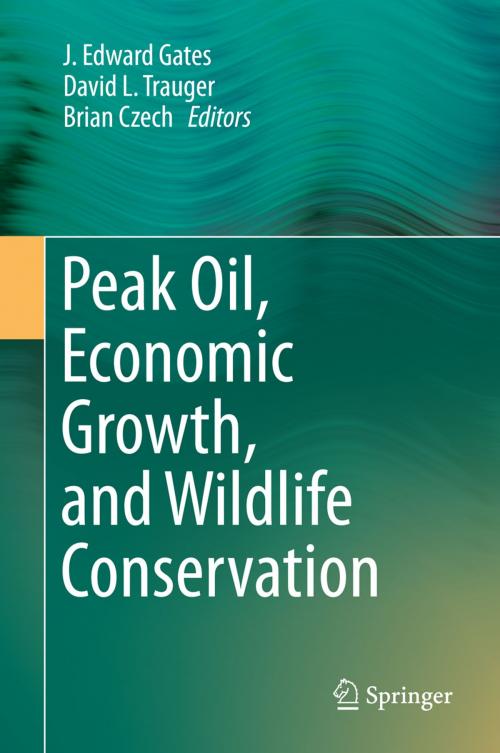Peak Oil, Economic Growth, and Wildlife Conservation
Nonfiction, Science & Nature, Science, Physics, Energy, Nature, Environment, Environmental Conservation & Protection, Technology| Author: | ISBN: | 9781493919543 | |
| Publisher: | Springer New York | Publication: | November 20, 2014 |
| Imprint: | Springer | Language: | English |
| Author: | |
| ISBN: | 9781493919543 |
| Publisher: | Springer New York |
| Publication: | November 20, 2014 |
| Imprint: | Springer |
| Language: | English |
The proposed book focuses on one of the most important issues affecting humankind in this century - Peak Oil or the declining availability of abundant, cheap energy—and its effects on our industrialized economy and wildlife conservation. Energy will be one of the defining issues of the 21st Century directly affecting wildlife conservation wherever energy extraction is a primary economic activity and indirectly through deepening economic recessions. Since cheap, abundant energy has been at the core of our industrial society, and has resulted in the technological advancements we enjoy today, the peak in world oil extraction would potentially have major impacts on civilization unless we prepare well in advance. One potential economic solution covered in the book would be a Steady State Economy with a stable population and per capita consumption, particularly in such industrialized countries as the United States. Furthermore, the lack of cheap, abundant energy directly and indirectly affects conservation efforts by professional societies and federal and state agencies, and NGOs concerned with wildlife issues. We need to recognize these potential problems and prepare, as much as possible, for the consequences stemming from them.
The proposed book focuses on one of the most important issues affecting humankind in this century - Peak Oil or the declining availability of abundant, cheap energy—and its effects on our industrialized economy and wildlife conservation. Energy will be one of the defining issues of the 21st Century directly affecting wildlife conservation wherever energy extraction is a primary economic activity and indirectly through deepening economic recessions. Since cheap, abundant energy has been at the core of our industrial society, and has resulted in the technological advancements we enjoy today, the peak in world oil extraction would potentially have major impacts on civilization unless we prepare well in advance. One potential economic solution covered in the book would be a Steady State Economy with a stable population and per capita consumption, particularly in such industrialized countries as the United States. Furthermore, the lack of cheap, abundant energy directly and indirectly affects conservation efforts by professional societies and federal and state agencies, and NGOs concerned with wildlife issues. We need to recognize these potential problems and prepare, as much as possible, for the consequences stemming from them.















